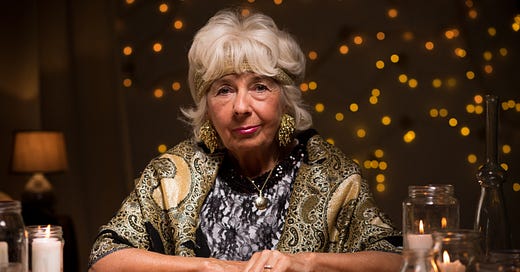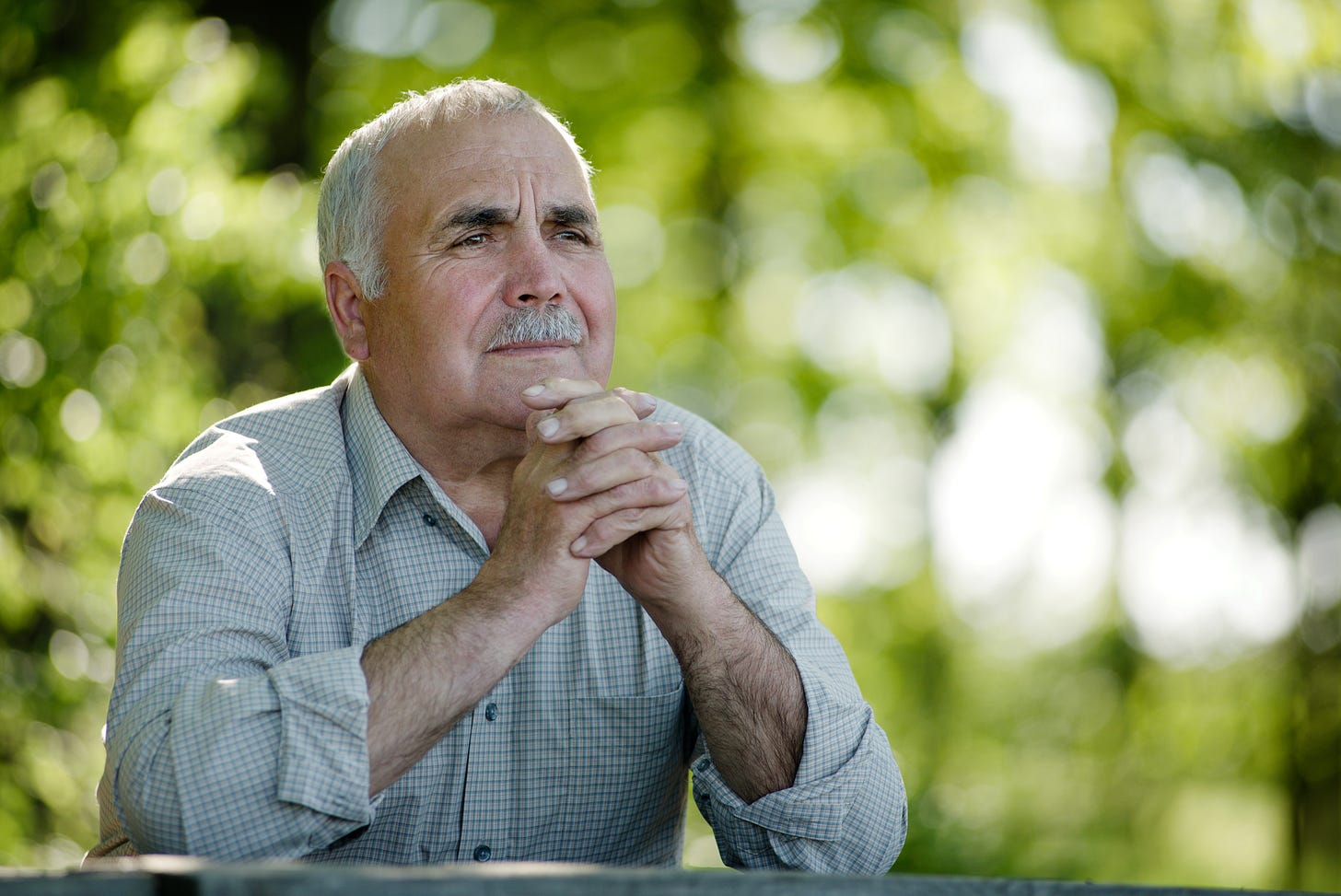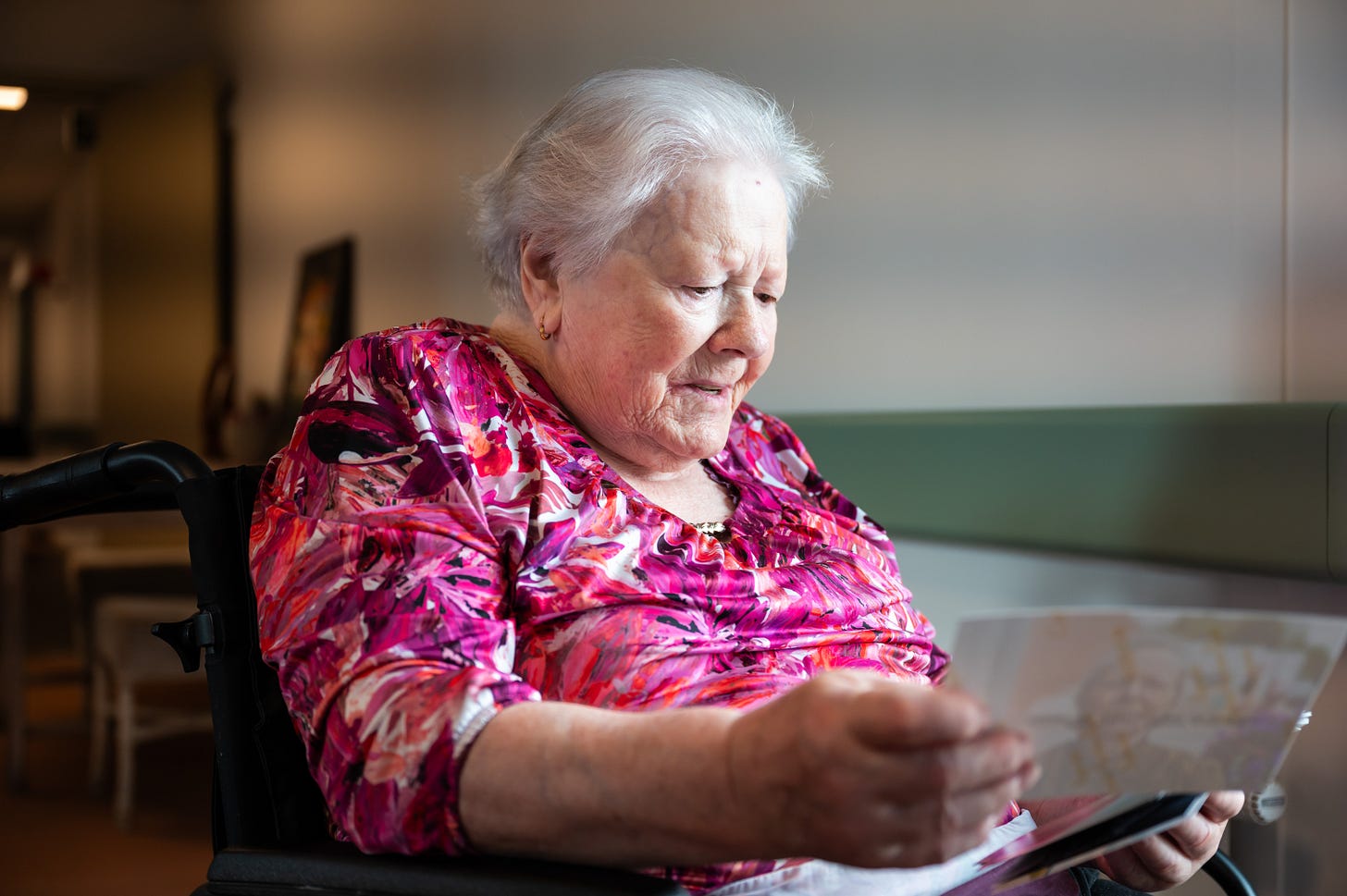A few weeks ago,
sent an update about his recent PET scan. It wasn’t good news. His metastatic renal cell carcinoma was not responding to treatment, and more areas of cancer had popped up. The PET scan images reflected Joe’s lived experience (less energy, more pain, muscle cramps).In addition to proposing a new treatment, Joe’s oncologist spoke about his prognosis. For the first time, he used hard numbers:
“Anytime we have spread and have to move to the next treatment plan we are looking at less of a chance of treatment working. We are looking now at months most likely. If we can get a year or two that’s great.”
Joe reflected on this change in tone:
He has always been cautious around prognosis and timelines and reiterated multiple times that this is speculation based on past evidence and that things can change, everyone is different and it’s not an exact science (predicting timelines). But again, if you’ve been reading this blog for a bit, you know my team has always been over cautious in not sharing a timeline, so this sits a little heavier with me.
As someone who has given a similar talk many times, I could read between the lines. As the end of Joe’s life neared, the oncologist knew how much time Joe had left. And it wasn’t alot.
At the beginning of treatment for Stage IV cancer, there is a great deal of uncertainty. We don’t know how your body or the cancer inside your body will respond to our treatments. And like Joe’s doctor said, there are new drugs coming on the market constantly that can change your prognosis overnight.
This uncertainty is why when patients ask me “How much time do I have?” my answer is long with many caveats and a heaping cup of “We will have to see.” I’m not being cagey. In the beginning, my crystal ball is foggy.
As I get to know your body and the cancer it contains – how aggressive it is, how it responds, how quickly it mutates, how well you tolerate treatment – the expected prognosis changes and yet still does not form a solid number. It remains ephemeral even as we feel more confident that our treatments are working.
It is only at the end of cancer when my quiver is running low on arrows that your time on earth begins to crystallize in my crystal orb. I cannot predict years, but I can predict months, weeks and days. As death comes closer, the future becomes more certain.
This certainty signals a change in our relationship. What were once breezy check-ins about soybean prices, ACC basketball or your latest novel are now difficult conversations about pain, suffering and losing hope.
We shift from discussing summer vacations to titrating medications that will allow you to watch your son’s downhill skiing finals in slightly less than excruciating pain. You spend all of your precious energy on a trek to this appointment. This is important.
My approach to this moment in your life is total honesty. It is the only way to show that I see you facing mortality while the rest of us worry about our saggy necks and the imagined slight of a Starbucks barista. Yes, I see you. Brave and scared. There is not enough time. And it is slipping away more quickly as you try to hang on.
When patients or family members ask what to do, I offer these thoughts. I’ve learned them from you and invite you to share more in the comments below.
1. Say These Four Things
Dr. Ira Bycock summed up four simple phrases in his book “The Four Things That Matter Most.” These sentiments express a desire to settle any unresolved conflicts with grace and integrity. They are extremely powerful words that everyone should speak (and hear) before a loved one dies. Gather your humans and say these words to them.
Please forgive me.
I forgive you.
Thank you.
I love you.
2. Clean Up Your Mess
The common euphemism is “get your affairs in order” but it basically means gathering documents, writing down passwords, discussing advance directives, drafting a will and ensuring people can access your stuff. This painful work is almost impossible to complete in the heavy haze of grief. What can you do now to help ease their pain? Creating a death folder is a practical act of love.
3. There Is No Time to Lose
Do the things you want to do now. If there is a relative you want to see, a trip you want to take, a celebration you hope to witness, do it ASAP. As the time between new treatment regimens shortens and your energy reserves wane, plan that one big thing and make it happen. Host an early birthday party, invite friends to visit or celebrate Christmas in July.
4. Record Messages for the Future
I remember a young father whom I was treating for a very aggressive cancer. It was growing through radiation and doubled in size every week. As it became clear he would need a tracheostomy in his neck so he could breathe, I tried to convince him to come into the hospital. Despite barely being able to breathe, a tracheostomy tube meant he would lose his ability to speak. Air would now pass through the tube in his neck not past his vocal cords. He resisted. He wanted to be at home with his family.
Tomorrow, he said, I will come in tomorrow. Tonight, I want to record videos for my daughter. I want her to hear my voice at her quinceañera; I want her to know how proud I am of her when she graduates from high school. He died two days later. I’m not sure if he recorded messages for her or not.
Now, when I sense the end is near, I boldly suggest that my patients pick up their pen and write the letters. Hold the phone up and tell their loved ones what they want to say on future special occasions. Sing Happy Birthday to You and your favorite song. every night you have the strength. Record the memories that only you share.
Your time is running short, and we can both see the clock hands moving quickly around the dial. Don’t stop for the silly stuff. This is too important to miss.












Hi Stacy - Thanks for the heartfelt perspectives in your post, especially the four things to say when the end is near. Two years after successful surgery, I'm recovering pretty well from my advanced colorectal cancer. Last fall, I was determined to visit my three sons and their families back in the USA, just in case I have a recurrence and don't survive five years. Life is uncertain. That's why I sometimes eat dessert first. Best regards.
The only voice recording of my mother that I have is her almost crying telling me she needs me to come be with her because things are not good (Stage 4 breast cancer - we both had it and I lived, she didn’t). I didn’t get her bubbly laugh and her confident ‘normal’ voice. I am grateful I have this message, but sad I missed the chance to save a happier one.